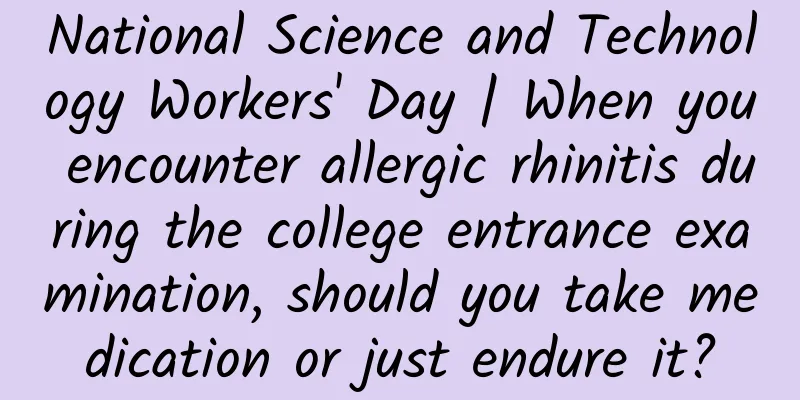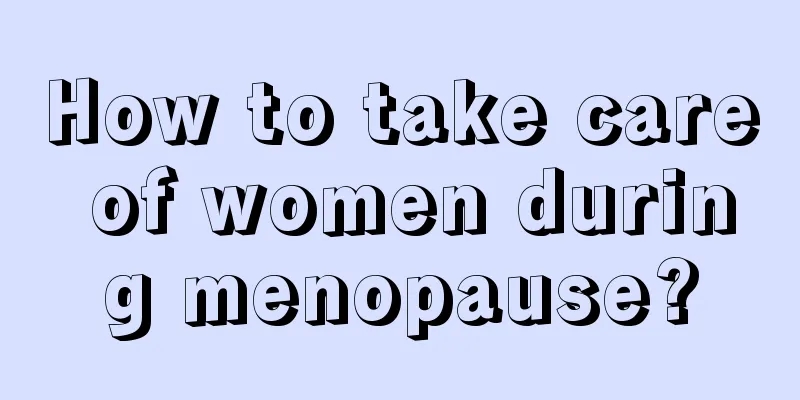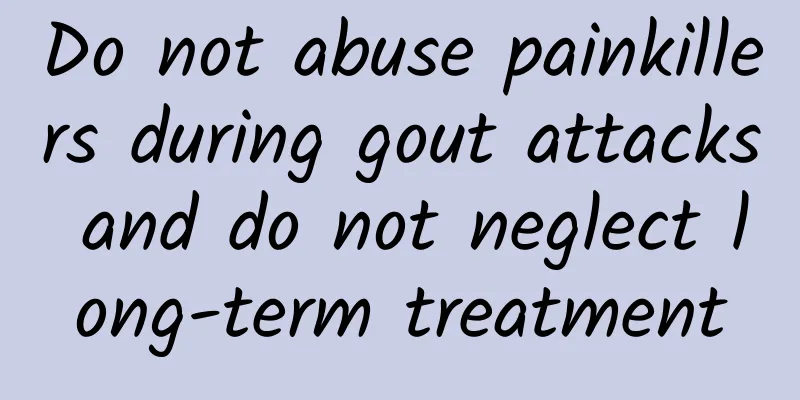National Science and Technology Workers' Day | When you encounter allergic rhinitis during the college entrance examination, should you take medication or just endure it?

|
As the college entrance examination was approaching, Xiao Li's allergic rhinitis recurred. He couldn't sleep well at night, couldn't concentrate during the day, and his memory was significantly impaired. Xiao Li's mother was also very anxious. She wanted to use medication but was worried about the side effects of the medication. If she didn't use medication, her child really couldn't bear it. Is there any medication that can be used in the short term and has quick effects without side effects? Middle school students are more likely to suffer from allergic rhinitis! According to statistics, as many as 25% of middle school students in China have suffered from various types of rhinitis, and middle school students are more likely to suffer from allergic rhinitis. This is mainly due to: 1. Environmental factors: If the living and learning environment is humid, the air quality is poor, and there is long-term stimulation from harmful substances such as dust and chemical gases, and there are many people in the school, there may be a large number of dust mites. 2. Human factors: After catching a cold or suffering from rhinitis, if you do not seek medical treatment in time due to heavy study tasks, it is easy for acute rhinitis to develop into chronic rhinitis due to repeated attacks. Common symptoms of allergic rhinitis include clear watery nasal discharge, sneezing, nasal congestion, and itchy nose. In mild cases, it can lead to memory loss and affect learning. In severe cases, it can cause hearing loss, asthma, sleep disorders, anxiety, depression, and even mental abnormalities, seriously interfering with study and life. What are the therapeutic drugs suitable for candidates? Currently, there are three main types of drugs that are suitable for candidates and have fast-acting effects on the treatment of allergic rhinitis: corticosteroids, antihistamines and decongestants. Glucocorticoids are the most powerful weapon for treating allergic rhinitis. They can effectively reduce the synthesis of inflammatory cells, reduce inflammatory mediators and thus control symptoms. Representative drugs include budesonide, fluticasone propionate and mometasone furoate nasal spray. However, many candidates and parents stay away from hormones. In fact, the use of glucocorticoids at therapeutic doses has no obvious effect on human adrenal cortex function, bone metabolism and growth, but overdose can produce various adverse reactions. Therefore, reasonable application is the key. If candidates want to use glucocorticoids, they must follow the doctor's advice and carry out individualized treatment according to the doctor's prescription. Antihistamines reduce inflammation by occupying the site of action of histamine, achieving an anti-inflammatory effect. This type of drug has two preparations: nasal spray and oral. Nasal sprays mainly include azelastine hydrochloride, olopatadine and levocabastine nasal spray. Oral antihistamines mainly include loratadine, cetirizine, desloratadine, levocetirizine, etc. Decongestants can effectively relieve nasal congestion by constricting blood vessels and quickly reducing nasal mucosal congestion and swelling. Representative drugs include ephedrine nasal drops, xylometazoline nasal drops, etc. If the nasal congestion is particularly severe, candidates can use nasal decongestants for a short period of time, but please note: such drugs should not be used continuously for more than 3 days, otherwise it may cause a "rebound" phenomenon and more severe nasal congestion. Allergic rhinitis is not terrible! If candidates encounter allergic rhinitis, as long as they choose the right medicine for themselves under the guidance of a doctor and use it reasonably, they can effectively control the symptoms and help you take the exam easily! Author: Chen Weiwu, pharmacist, Department of Pharmacy, The Fifth Affiliated Hospital of Sun Yat-sen University Review expert: Zhao Huibin, pharmacist and deputy director of the Pharmaceutical Society of the Fifth Affiliated Hospital of Sun Yat-sen University Wei Guoyi, Chief Pharmacist, Beijing Anzhen Hospital, Capital Medical University |
<<: Where is the origin of Qiantang River? What is the upper reaches of Qiantang River?
>>: Is it normal to cry as you get older?
Recommend
What can I apply to prevent stretch marks? What can I apply to prevent stretch marks?
We all know that after a woman becomes pregnant, ...
Is baking soda a good vaginal rinse?
Some friends believe that flushing the vagina wit...
A moldy cantaloupe began to change the fate of mankind...
The discovery of penicillin is probably the most ...
My child blinks frequently, what could be the cause?
Many parents will observe their children blinking...
Silent evidence: How does the new coronavirus "devour" the patient's body?
Two months ago, Fanpu published an article discus...
The difference between primary infertility and secondary infertility
For women, they all hope to have a healthy and lo...
Why do nipples hurt after ovulation?
Many people may wonder why nipples hurt after ovu...
What is the cause of breast engorgement?
Breast engorgement is a very common physical cond...
How long is the pregnancy?
In daily life, many friends who are preparing to ...
Where is the ovarian reflex zone?
Young women always think that they are in good he...
Causes of acne on forehead of adolescent girls
Adolescent girls are prone to encounter various p...
What happens if you exercise vigorously during menstruation?
Many girls love fitness exercises. Naturally, exe...
Can women eat crabs when they have their period?
Autumn is the best time to eat crabs. Although cr...
Pathogens that infect over 600 million people! You may only know about one of them!
There has been a lot of popular science about &qu...









